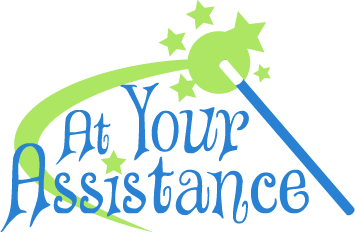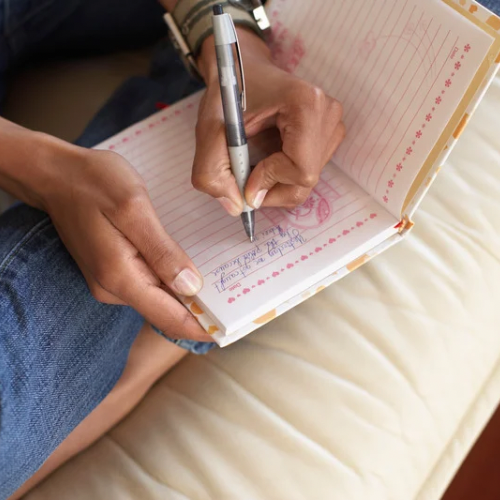
A Strategy To Deal With Worry: Boost Productivity With A Worry Journal
“I can’t think about that right now. If I do, I’ll go crazy. I’ll think about it tomorrow.” I’ve always loved this line from “Gone With The Wind.” You may have thought that this was Scarlet’s attempt to avoid what was going on, but it’s actually a productive strategy to deal with worry. Many of us have uncertainty in our lives right now. Worry can plague our minds and make us less productive than we want to be in our homes or at work.
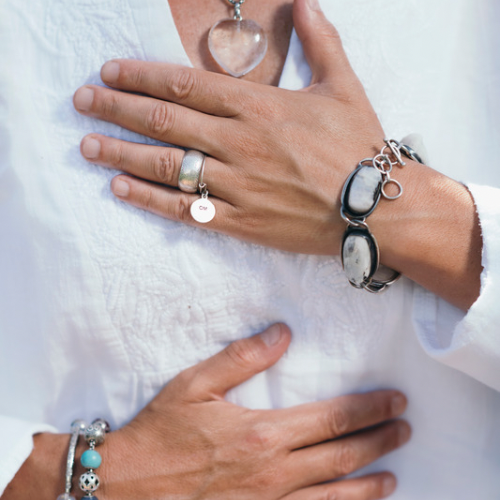
Two Minutes To Jumpstart Your Next Organizing Project
Do you have a room that overwhelms you? Perhaps just walking into it makes you want to walk right back out of it? Sometimes people think that if they just knew where to start, they could actually progress. When I get asked where to start in a room like this, I usually say, “Start with your why.” There are a lot of reasons why a room gets cluttered and reasons why change needs to happen. But, what if I was to tell you that there is another way?

How to Create a Schedule That Allows You to Live in Balance with Your Time and Energy
I often get asked, “How do I schedule my day so that I am most productive?” This is not a question with a simple answer because even though we all have the same amount of time each day, we don’t have the same amount of energy. Everyone’s attention span and energy levels are different and they fluctuate throughout the day. For a productivity schedule to work, we first have to be able to recognize the energy levels in our own bodies.

Rejuvenate Your Space: An Introduction To Holistic Organizing
At the start of every new year, I feel a burst of rejuvenation. We declutter spaces to make room for the new things brought in from the holidays. After decor is taken down, we work to cleanse the house. I open a window to bring in a bit of that January air to let each room breathe. I, too, breathe in the icy cold air. For a few moments it feels so good. And then, of course, it gets too cold and I have to shut it down and wrap myself in a blanket.

Decluttering Gifts
The season of gift giving is upon us! This time of year makes me think about those of you who have asked me about gifts you have received but no longer want. My reply is usually “Just donate it,” but that answer is often met with mixed reactions. Even though you have stated very clearly that you don’t want the item, something about it continues to sow doubt and you end up keeping it.
I understand that you don’t want to hurt a relationship, offend someone you love or make them feel bad. But let’s flip this the other way around. This gift is actually making you feel bad.

Thoughts Are Things
I’ve been making more time for meditation. And, let me say that working on quieting your mind and noticing all the thoughts that are going through it can be quite disconcerting. We only have control over what is happening to us right now, yet in our minds we dwell on the past or worry about the future.
The same goes for physical objects. A lot of our things are not serving a real purpose in the present. We save them because they were meaningful to us in the past or because we think we might need them for our future. But saving all of that stuff makes us feel very overwhelmed
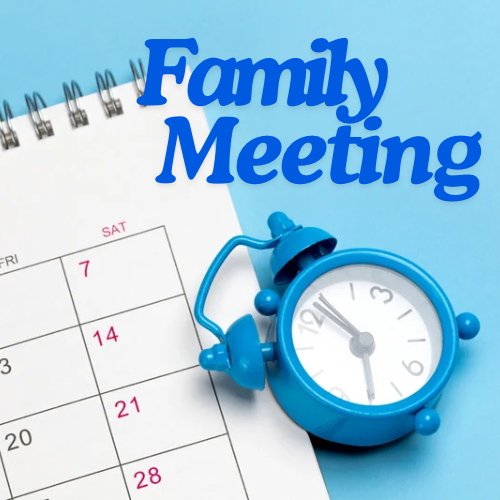
Family Meetings: Don't Groan, It's Worth The Effort
If you have school-age children then you know that September brings about a tumultuous schedule shift that is never the same from year to year. These changes can bring about a lot of chaos if you are not prepared. If you identify with any of the questions below, then NOW is the perfect time to gather everyone together and have your very first family meeting.

‘When The Going Gets Tough, The Tough Go Shopping’
Recently I read that the moment right before you buy something is when you are happiest with your purchase. I’m not sure if that theory can be proven to be true, but I find it to be a fascinating idea. I suppose it is why so many people find enjoyment with the act of shopping.

Temporary Chaos
We just added a dog to our family and the house is a bit out of control. My countertops are full of dog things that need to find a home. We’ve been shifting around furniture and shoes until we can trust him in the house. All of our schedules have changed because we are now adding in walks, play time and training. Right now I am what you would call “situationally disorganized.”
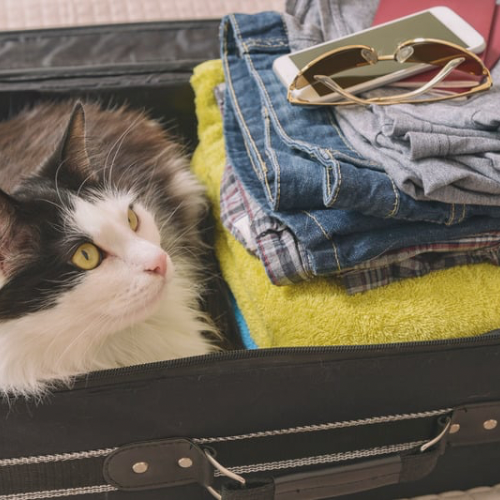
How A Professional Organizer Packs For A Trip
Your vacation is a short time away, so you open the suitcases and start adding the things you think you might need. Does this sound familiar to you?
What if I said there was a much better way. And that way starts with a list. Stay with me here, don’t let that list word scare you away. Let me explain why making a list is so much easier than opening the suitcase and throwing things in.
A list allows you to plan out exactly what you need. You can start it well in advance of your vacation so you have time to really think about what you will use on the trip. By planning earlier you have more time to remember things that you might otherwise have forgotten.
